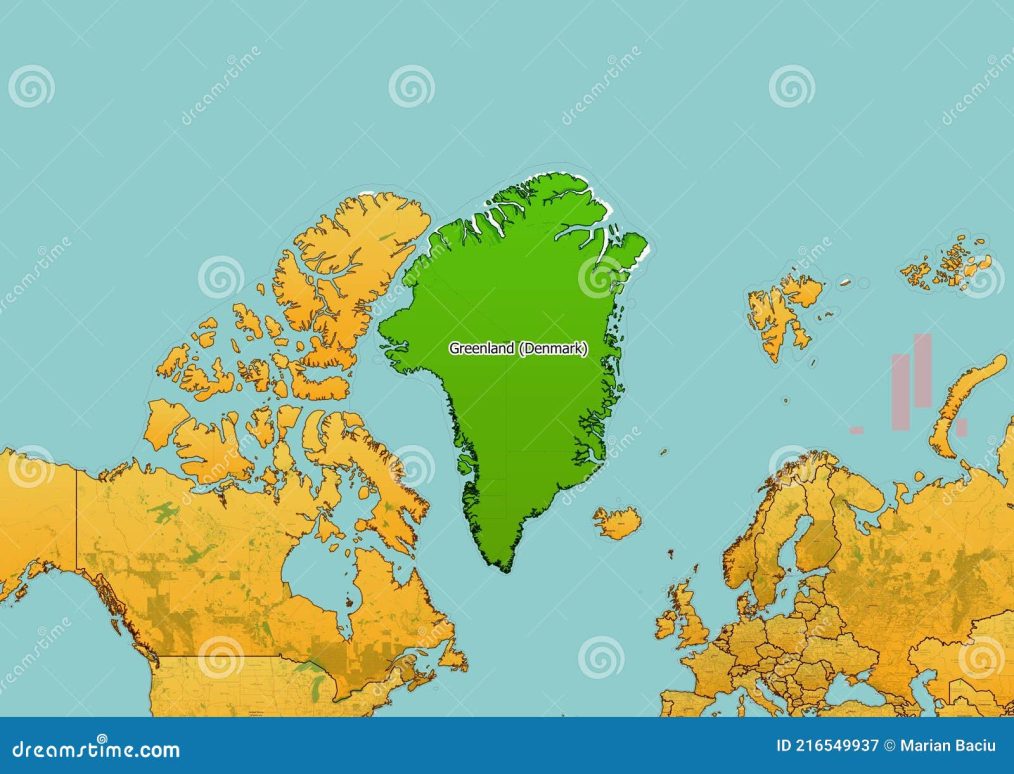
Why Does Trump Want to Buy Greenland?
The Times
The idea of a U.S. President openly expressing interest in purchasing a foreign territory might seem outlandish to some. Yet, former President Donald Trump’s remarks about acquiring Greenland were not as unprecedented as they initially appeared. Historically, the United States has a long record of territorial expansion. Trump’s proposal may have drawn scepticism from global leaders, but it also highlights his unconventional approach to geopolitics and national strategy.
Greenland, an autonomous territory of Denmark, is strategically significant for a variety of reasons. Its location in the Arctic makes it a vital geopolitical asset, particularly as melting ice caps open new shipping routes and access to previously untapped natural resources. The island also holds key military significance, hosting Thule Air Base, a critical part of the U.S. missile warning and space surveillance system.
For Trump, Greenland represented an opportunity to secure a foothold in a region that is rapidly becoming a new frontier for global influence. The Arctic is emerging as a contested space, with countries like Russia and China increasing their presence. By acquiring Greenland, the U.S. could strengthen its strategic position in the Arctic and protect its national interests in the face of growing competition.
Beyond its strategic location, Greenland is rich in natural resources, including rare earth minerals, oil, and gas. These resources are essential for advanced technologies, such as smartphones, electric vehicles, and military hardware. As global demand for these materials grows, securing access to them becomes a national security priority.
Trump’s background as a businessman likely influenced his interest in Greenland. He saw the island not just as a geopolitical asset but as a potential economic boon. Investing in Greenland’s development could unlock valuable resources and create economic opportunities for the U.S., making the acquisition a win-win scenario in Trump’s eyes.
The concept of purchasing territory is not new in American history. The Louisiana Purchase in 1803, the acquisition of Alaska from Russia in 1867, and the annexation of Hawaii in 1898 are examples of the U.S. expanding its borders through diplomatic and financial means.
Trump’s Greenland proposal can be viewed through this historical lens. His suggestion may have been unconventional by modern diplomatic standards, but it aligns with a long-standing American tradition of territorial expansion. Critics who dismissed the idea as absurd may have overlooked the historical context in which such deals have been successfully executed in the past.
Trump’s comments about purchasing Greenland drew mixed reactions from world leaders. Danish officials, including Prime Minister Mette Frederiksen, dismissed the idea as “absurd,” leading to a brief diplomatic rift between the U.S. and Denmark. However, some analysts argue that Denmark’s initial rejection may have been a missed opportunity to strengthen ties with the U.S. and secure economic investment in Greenland.
On the other hand, Trump’s rhetoric sent a clear message to the world: the U.S. is serious about maintaining its influence in the Arctic. By raising the issue publicly, he brought attention to the strategic importance of Greenland and the need for Western nations to counterbalance the growing presence of Russia and China in the region.
Donald Trump’s interest in Greenland exemplifies his unique approach to leadership. He viewed the world through the lens of a dealmaker, always seeking opportunities to strengthen America’s position both economically and strategically. While the proposal may have been dismissed by some as unrealistic, it sparked a critical conversation about the Arctic’s importance in global affairs.
As the world continues to grapple with shifting geopolitical dynamics, Trump’s Greenland proposal serves as a reminder that unconventional ideas can sometimes highlight overlooked strategic priorities. Whether visionary or misguided, his interest in Greenland underscores the evolving nature of global power and the enduring relevance of territorial expansion in American history.




The threat of doing this is a distraction to real domestic security issues not an example of great leadership. Trump also is not ruling out the use of military force to take control of Greenland, again not great leadership.
The fragile AUKUS deal will be next on the list while SCOMO is leaching on to keep it moving forward to save his own face.
The world now doesn’t see the United States as the exceptional country it once was.
Thanks for the money Australia. Trump has got your back!
An attempt by Trump to re-invigorate US Monroe doctrine (US Imperialism) of the 19/20th century. The US has had access to Iceland for their defense needs as part of NATO since its inception if needed. So why rock the NATO boat?